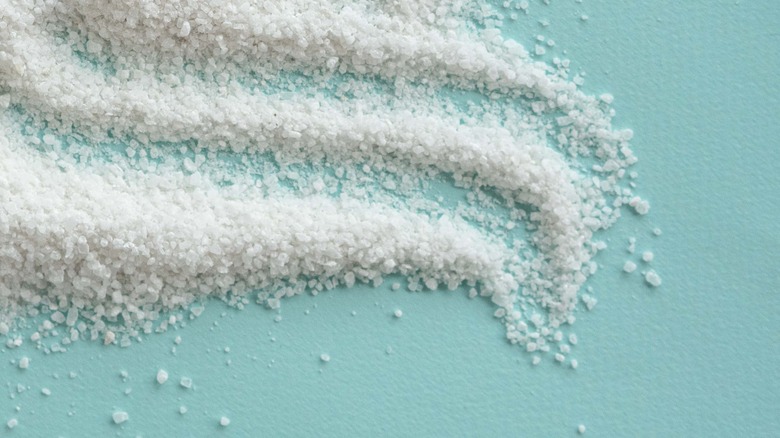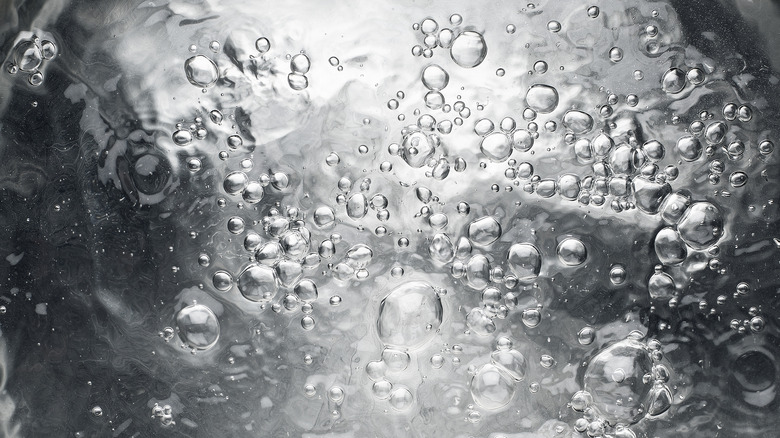Does Salt Slow Down Boiling Water?
Cooking isn't always an easy feat. There are some things that can be particularly challenging from perfecting knife skills to finally mastering the art of making soufflé. Yet, sometimes it's the simplest cooking tasks that can actually be the biggest head-scratchers. While boiling water is just about as basic as it gets, there's often a great debate on whether or not salt should be added before or after the water reaches a rolling boil. But can increased salinity actually slow the process?
If you're cooking, chances are that you're probably going to be bringing a pot of water to boil. Whether for pasta or blanched vegetables, there's nothing worse than waiting around for those bubbles to form. Rather than stare at the still water, you can speed things up by doing a few things like using less water (and making sure it's hot), along with keeping your pot covered to trap heat can all help move things along, notes Allrecipes. But, what about adding some salt?
Technically yes, but only by seconds
Although salting water is necessary to season ingredients as they cook, there is an old wives' tale that suggests adding salt to a pot of water before it boils will take much longer to bubble. While salt actually will increase the boiling point of the water, Martha Stewart claims that a dash of the salty stuff isn't likely to slow down bubbling that significantly.
The science relies on something called boiling point elevation. When salt (a dissolvable substance) is introduced to water (a substance that dissolves a solute), ThoughtCo explains that the solution requires more heat exposure. Despite the fact that the salty water will then reach slightly higher temperatures, this doesn't mean it'll boil more quickly.
So, why does water seem to bubble furiously when a handful of salt is tossed into simmering water? Apparently, it's a bit of an illusion. According to The Naked Scientists, salt crystals act as nucleation points that make it easier for bubbles of vapor to form since they disrupt the structure and surface tension of the water. The result is more intense bubbling — at least initially.

